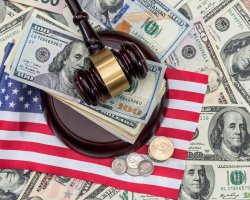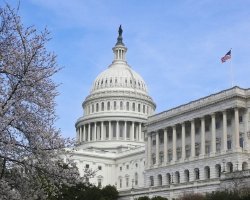Florida Grabs Two Slots in a “Top 15” List – and Why that’s Really Bad News
It seems like it’d always be desirable for a city to show up on a list of the Top Ten or Twenty for some particular quality. Florida is no newcomer to these honors. There’s always two or three Florida beaches on a Top Ten list of U.S. beaches. Orlando will usually make the list of best places in the U.S. to visit. But this time, Florida is not exactly honored by taking two places on a new “Top 15” list.
This list was created by Castlight Health, a healthcare information company. By using compilations of pharmacy and medical claims, they were able to determine which American cities had the highest rates of opioid (synthetic opiates) abuse. They listed these cities in a report titled “The opioid crisis in America’s workforce.”
Given the addictiveness of opioids, appearance on this list would certainly indicate that these cities would also have higher-than-average levels of opioid-addicted citizens. And with the abuse of opioids of any type comes the ever-present danger of overdose. These problems not only devastate individuals and their families, they also strain the social and healthcare services of local governments. So landing on this particular list is definitely no honor.

Pensacola, Florida
Landing at the #6 spot was Pensacola. The report notes that 10% of the residents who had a prescription for opioids were abusing them and that 47% of all prescriptions filled are eventually abused. In April 2017, the Pensacola News reported that heroin deaths in the area had hit record highs for the second year in a row.
Panama City, Florida
Panama City came in at #3. The Castlight research found that 11.5% of all residents who had prescriptions for opioids were abusing them and that 52% of the prescriptions filled are abused. The Panama City News Herald also reported high levels of overdose deaths attributable to heroin and fentanyl.
Floridians Need Effective Recovery
For too many people, their attempts to recover from addiction mean they are prescribed more addictive medications. Once arrived at a drug rehab, they might have been given Suboxone or Zubsolv, both made with buprenorphine, a drug similar to morphine or heroin. Or they may have been prescribed anti-anxiety medications or antidepressants—also addictive if prescribed for too long. The Narconon drug rehabilitation program provides a way for those looking drug rehab in Florida, to recover from addiction and learn how to build new, sober lives for themselves—while avoiding any further exposure to addictive medications.

The Narconon program itself is 100% drug-free and has been freeing the addicted from their chains for more than 50 years. Narconon centers exist in 9 locations across the US. One such location is Narconon Suncoast, which was founded to bring this program to Floridians and those in neighboring states as well. This is not a 30-day program where an individual is shown the door when the clock strikes. At Narconon Suncoast, what’s important is that an individual is ready to face his (or her) life after graduation and that he feels like he has the tools to succeed. If someone you love could use a program like this to break free from addiction, call Narconon today: 1-800-775-8750.
To read the Castlight Health report, click here.


 ®
®